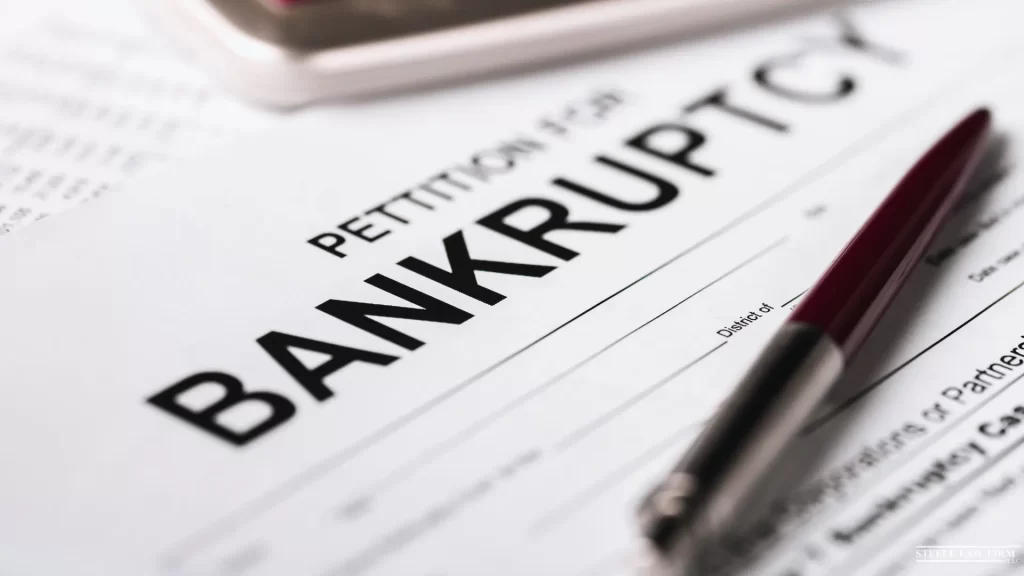Filing for bankruptcy can provide a fresh start when you are overwhelmed by debt, but not everyone qualifies. In Texas, like in other states, there are specific rules that determine eligibility. If you are considering bankruptcy, it’s important to understand the factors that could disqualify you. An Irving bankruptcy lawyer from the Steele Law Firm, PLLC, hopes to answer your question, “What disqualifies you from filing bankruptcies in Texas?”
Certain income thresholds, past bankruptcy filings, and even the type of debt you have can all impact your ability to file. Knowing what could prevent you from filing is crucial before moving forward with the process. Whether you are dealing with overwhelming medical bills or credit card debt, understanding these guidelines can help you make informed decisions on your financial future.

There has been a rise in bankruptcy filings, around 14.2 percent higher, in 2024, so you are not alone in asking these questions. There are specific rules in place that determine whether you can file for bankruptcy in Texas. Understanding what might disqualify you is crucial before you move forward with the process. Those potential factors include:
In Texas, Chapter 7 bankruptcy allows you to eliminate most of your unsecured debt, but you must meet certain income requirements. The state uses a “means test” to determine eligibility. If your income is above the state median for your household size, you may not qualify for Chapter 7 and could be required to file under Chapter 13 instead. The test takes into account your monthly income, expenses, and the number of dependents in your household.
If you’ve recently filed for bankruptcy, you may be disqualified from filing again for a certain period of time.
For instance, if you filed for Chapter 7 bankruptcy previously, you cannot file again for at least eight years. If you filed for Chapter 13 bankruptcy, you must wait at least two years before filing another Chapter 13 case and six years for a Chapter 7 case. This waiting period is in place to prevent individuals from using bankruptcy as a frequent solution to financial struggles.
Bankruptcy fraud can lead to serious consequences, including the disqualification of your bankruptcy case. If you have been dishonest in your filing, such as hiding assets or providing false information about your finances, your case will likely be denied. Any attempts to defraud creditors or manipulate the bankruptcy process can lead to criminal charges and severe penalties. It is vital that you are transparent and truthful throughout the process.
Some types of debt are not dischargeable in bankruptcy. For example, student loans, child support, and alimony typically cannot be eliminated through bankruptcy, except in rare cases where undue hardship can be proved. Recent luxury purchases or cash advances made shortly before filing may not be forgiven. It’s important to understand which debts are actually dischargeable before filing.
While bankruptcy can be a lifeline for those struggling with debt, it’s important to understand the rules and restrictions involved. Knowing what disqualifies you can help you avoid delays or mistakes in the process. If you’re uncertain about your eligibility or need guidance, it’s helpful to seek professional advice. Understanding your options, whether bankruptcy or an alternative, can ensure you make the right decision for your case.
A: Certain factors can disqualify you from filing for bankruptcy. For example, if you’ve filed for bankruptcy within the past 6-8 years, you may be ineligible for a new filing. Additionally, if your income exceeds the median level for your state, you might not qualify for Chapter 7 bankruptcy. Fraudulent behavior, such as hiding assets or lying on documents, can prevent you from filing. It’s important to follow all legal rules when considering bankruptcy.
A: Yes, bankruptcies can be denied. If you don’t meet the eligibility requirements, your filing may be rejected. For example, if you’ve recently filed for bankruptcy or failed to complete required credit counseling, your case may get denied. Other reasons include not providing accurate or complete information or engaging in fraudulent behavior. If a bankruptcy is denied, you may have the option to appeal or refile under different circumstances.
A: The bankruptcy process starts with filing a petition in court. You’ll submit detailed financial information, including debts, assets, and income. Next, a trustee is appointed to oversee the case. For Chapter 7, non-exempt assets may be sold to pay creditors. Chapter 13 involves a repayment plan, usually lasting 3-5 years. After completing the process and meeting the requirements, the remaining debts may be discharged.
A: To qualify for bankruptcy, you must meet certain criteria. For Chapter 7, your income should be below the state median, and you must pass a means test. If your income is higher, you may qualify for Chapter 13, where you’ll repay debts over 3-5 years. You also need to show that you’re unable to pay your debts. Additionally, you will be required to complete credit counseling before filing.
A: Bankruptcy can have several negative impacts. It significantly lowers your credit score, making it harder to get loans or credit cards in the future. It can stay on your credit report for up to 10 years, affecting your financial opportunities. Bankruptcy may also result in the loss of some assets, depending on the type you file. While there are negative impacts, it can offer relief from overwhelming debt.
While bankruptcy can offer a much-needed financial reset, it’s not always an option for everyone. Factors like income, previous filings, and the type of debt you have can all impact your eligibility in Texas. If you’re unsure about your situation or need guidance on alternatives, consulting a bankruptcy lawyer is a smart step.
An experienced lawyer can help you navigate the process, explore all your debt relief options, and ensure you understand your rights. Reach out to the Steele Law Firm, PLLC, to set up an initial consultation to receive personalized advice before making any decisions.




